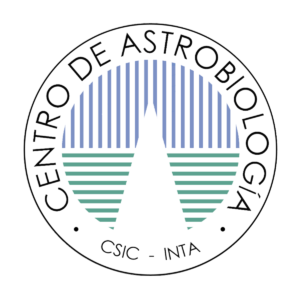A multidisciplinary team from Centro de Astrobiología has won the European Astrobiology Network Association (EANA) award to the most outstanding research paper published during 2020. The award will be presented to the authors today, Friday 10 September, by André Brack, chairman of the jury and first President of EANA, and the current President of EANA, Barbara Cavalazzi, during the closing ceremony of the 20th EANA Congress, held from 7 to 10 September 2021.
The winning paper, entitled “The Complex Molecules Detector (CMOLD): A fluidic-based instrument suite to search for (bio)chemical complexity on Mars and icy moons”, was published in the journal Astrobiology (Astrobiology, 20(9), 1076-1096) in September 2020.
The European Astrobiology Network association (EANA): http://www.eana-net.eu/
About the awarded article
The first places we are beginning to explore in search of extraterrestrial life are Mars and the icy moons of the outer Solar System. As our search for possible extraterrestrial biological materials progresses, it becomes increasingly clear that we cannot use the same strategies we use for identifying signals associated with the biological processes of life on Earth. It stands to reason that extraterrestrial molecular biology (if it exists) does not necessarily resemble the molecular biology familiar to us on Earth, and therefore the strategies currently used for detecting life on our planet may not be able to identify extraterrestrial life at all. Therefore, we need to explore new methods that detect different chemical features in unknown life forms, and that may represent as yet unrecognised biological processes. This new philosophy for the search of extraterrestrial life has permeated discussions in the astrobiological community over the past few years; however, very few tangible solutions have been proposed to address this challenge.
As CAB researcher Alberto Fairén points out, “This is where our paper breaks new ground: we go beyond the academic discussion and propose an original and specific set of life detection tools, avoiding focusing exclusively on known features of life on Earth. Thus, our proposal is intended to be of use in addressing the most formidable challenge facing any astrobiological strategy: if there is life out there, how could we identify it?”
The prize-winning article therefore explores new avenues in the search for extraterrestrial life, and addresses some of the technological challenges and methodological knowledge gaps posed by the problem of identifying life outside Earth, in this case focusing on the detection of life that may be very different from what we know.
Victor Parro, Director of CAB, adds: “The strategy we propose in the paper for the detection of extraterrestrial life is designed to identify the generic features of biological processes that distinguish them from abiotic chemistry, such as the need for complex polymers (in size and chemistry) endowed with structural plasticity, or the generation of compartments or morphologies by interaction between these molecules. Our methods involve the improvement of existing instrumentation to adjust and focus it on the detection of such features that we consider universal to carbon-based life. The ultimate goal is that these techniques can be used in astrobiology research worldwide.













